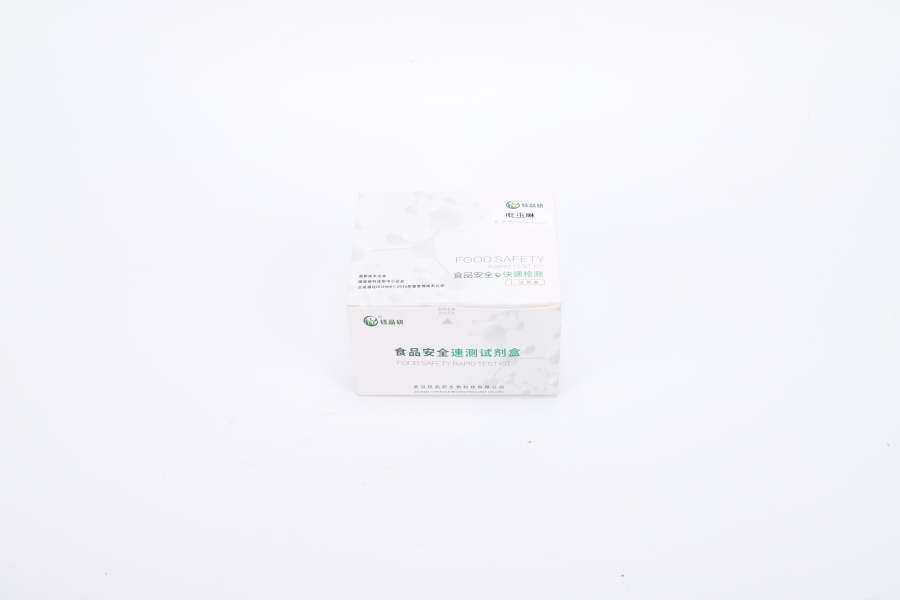
recent years, with the continuous improvement of people's attention to food safety, agricultural products, as the source of the food supply chain, have received increasing attention to their microbial contamination. Fruits, vegetables and grains are highly susceptible to contamination by foodborne pathogens and spoilage bacteria in production, processing, transportation and storage, which not only threatens the health of consumers, but also brings huge economic losses to agricultural production and food industry. Therefore, establishing an efficient and convenient microbial rapid detection program is of great significance for effective risk prevention and control and ensuring the quality and safety of agricultural products.
Foodborne pathogens such as Salmonella, Escherichia coli, Listeria, etc., as well as spoilage bacteria such as molds and yeasts, are the main culprits of microbial contamination of agricultural products. Traditional microbial detection methods usually rely on culture, isolation and biochemical identification. The operation is cumbersome and takes a long time. It often takes several days to obtain results, which is difficult to meet the needs of modern agricultural product supply chains for rapid detection. The emergence of rapid detection technology provides the possibility to solve this problem. As a professional food safety rapid detection reagent manufacturer, Wuhan Yupinyan Bio is committed to escorting the safety of agricultural products. The rapid detection reagent developed by it can achieve rapid and accurate detection of common foodborne pathogens and spoilage bacteria in fruits, vegetables and grains.
is aimed at fruit and vegetable agricultural products. Due to its high moisture content and rich nutrition, it is easy to breed spoilage bacteria and cause decay and deterioration. At the same time, it may also be contaminated by pathogenic bacteria caused by soil, water sources or human factors. Wuhan Yupinyan Bio's rapid detection program can quickly screen the surface and internal pathogenic bacteria of fruits and vegetables. For example, through immunochromatography, real-time fluorescent PCR and other technologies, the detection results can be obtained in a short time, helping growers, processing enterprises and regulatory authorities to detect the source of pollution in time, take effective control measures, and reduce the loss and safety risks caused by corruption and pathogens.
For grain agricultural products, mold contamination and the resulting mycotoxins are the main safety hazards during storage, and may also be contaminated by pathogens such as Staphylococcus aureus. The rapid detection reagent provided by Wuhan Yupinyan Bio can sensitively detect the number of spoilage bacteria and specific pathogens in grains, providing a scientific basis for the storage management of grains. Through regular monitoring, storage conditions can be adjusted in time to prevent excessive mold growth and ensure the quality and safety of grains.
Wuhan Yupinyan Bio's rapid detection program for agricultural microorganisms is not only easy to operate, does not require complex equipment and professional skills training, and is suitable for on-site rapid screening, but also the detection results are accurate and reliable, and have good consistency with traditional methods. The application of this program can significantly shorten the detection cycle, improve the detection efficiency, and help relevant enterprises and institutions quickly grasp the microbial contamination of agricultural products, so as to control risks at the source and enhance the market competitiveness of agricultural products.
To sum up, the rapid detection of agricultural microorganisms is a key link in ensuring food safety. Wuhan Yupinyan Bio will continue to focus on the innovation and development of rapid food safety detection technology, provide better and more efficient detection reagents and solutions, help build a more robust agricultural microbial prevention and control system, and contribute to protecting the "safety on the tip of the tongue" of the people. By promoting the application of rapid detection technology in production, processing, circulation and other links, it can effectively reduce the risk of food-borne disease, reduce the loss of agricultural corruption, and promote the healthy and sustainable development of the agricultural industry.

